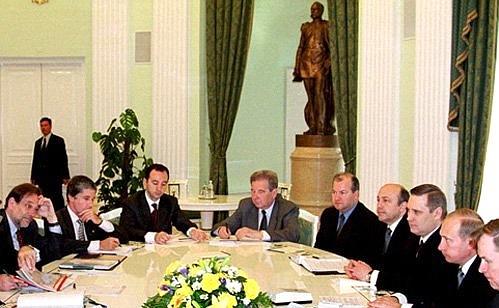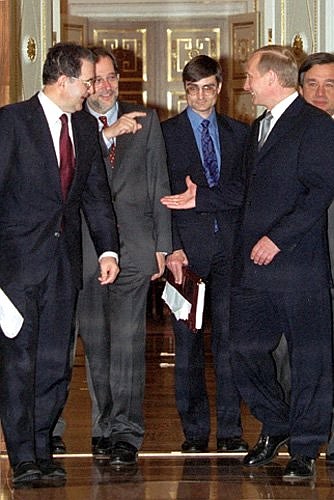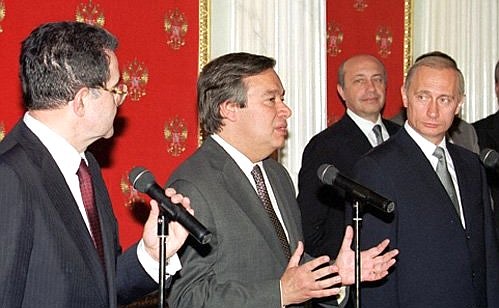President Vladimir Putin opened the meeting by saying that the fundamental principles that united Europe were also fundamental for Russia. He said that Russia had always been and would always be a European country and had always assigned top priority to its relations with the European Union.
The meeting focused on economic cooperation, EU enlargement and nuclear security.
The Russian side briefed the European representatives on the economic and political situation in the country and ways of dealing with the complex problems in the North Caucasus.
Taking part in the meeting on the side of the EU, which is currently chaired by Portugal, were that country’s Prime Minister Antonio Guterres and Foreign Minister Jaime Gama, as well as President of the European Commission Romano Prodi and Secretary General of the EU Council and High Representative for the Common Foreign and Security Policy Javier Solana.
Taking part on the Russian side were Prime Minister Mikhail Kasyanov, Deputy Prime Minister Viktor Khristenko, Foreign Minister Igor Ivanov and Chairman of the Russian Inter-Departmental Commission for the G8 Andrei Illarionov.
The summit adopted a joint statement which notes that the key common goal of the Russian Federation and the European Union is the early accession of Russia to the World Trade Organisation. The document also affirms the commitment of the parties to increasing European investment in the Russian economy.
During the final press conference, Mr Putin described the meeting with the EU as constructive, frank and productive.
Coordinating positions in international affairs loomed large in the discussion, according to the President.
On the situation in the North Caucasus, Mr Putin said that after the armed resistance of the terrorists and extremists in the Chechen Republic was crushed, the reconstruction of the social, economic and cultural life of the region began. He added that everything possible would be done in short order to ensure the presence of an OSCE group in Chechnya.
Mr Putin stressed the need not only to safeguard human rights, but to respect all Russian laws in Chechnya. He noted that Russia had never aimed to enslave the Chechen people but was against human rights being used as a pretext to impede the restoration of order and the normalisation of the situation in the republic.


